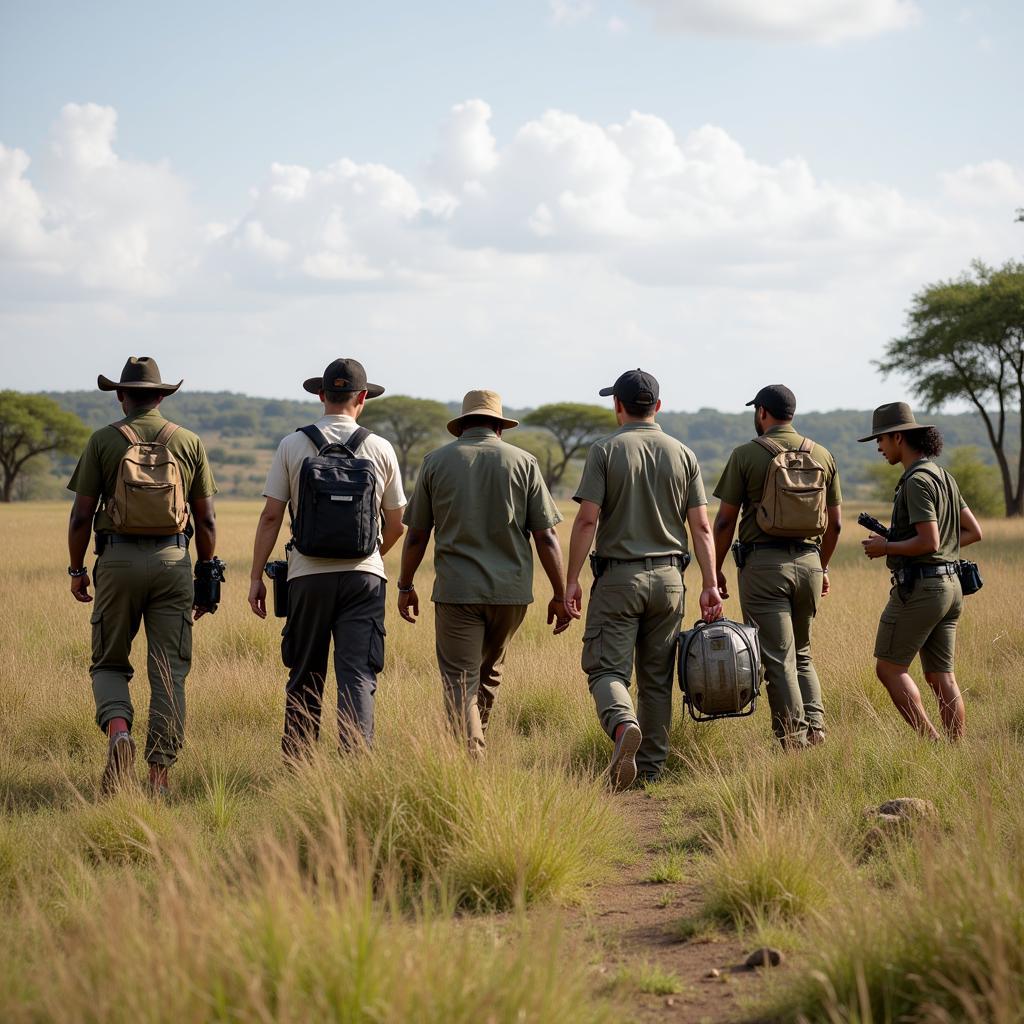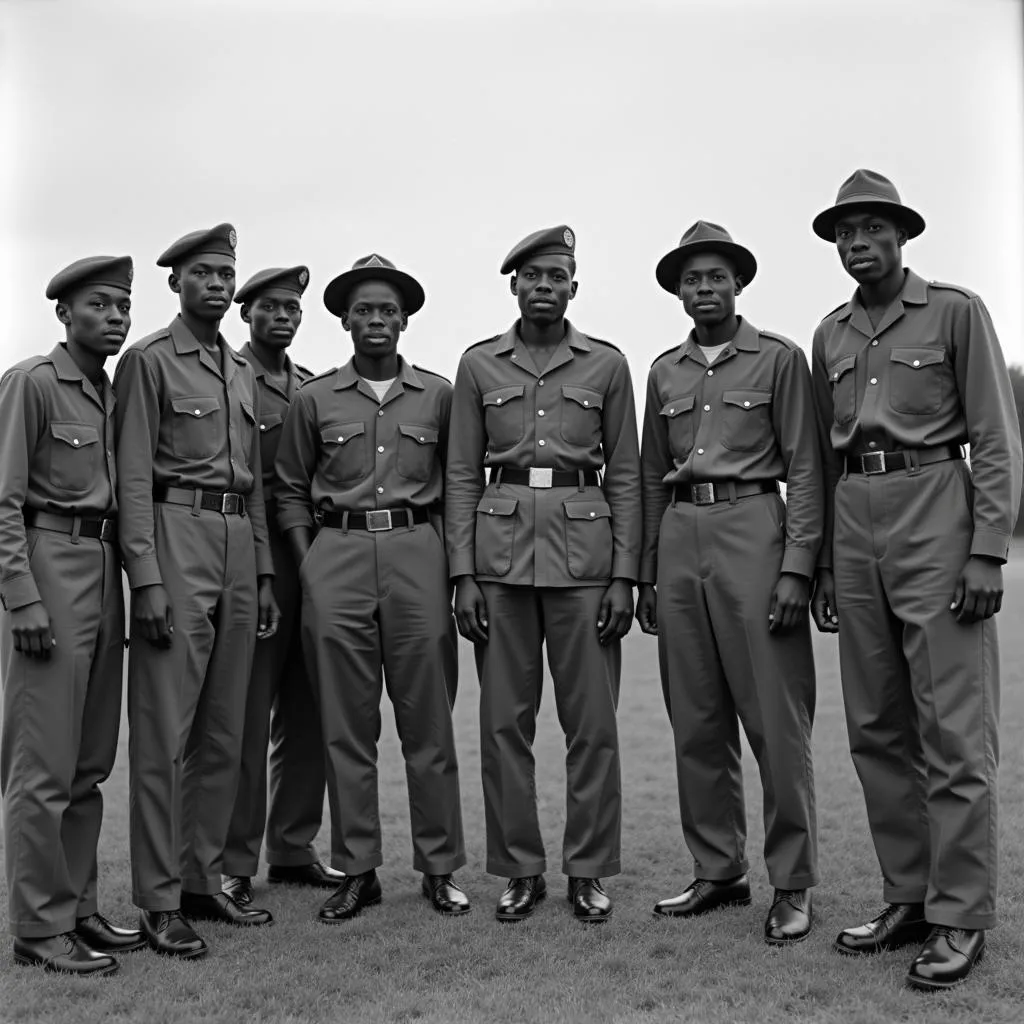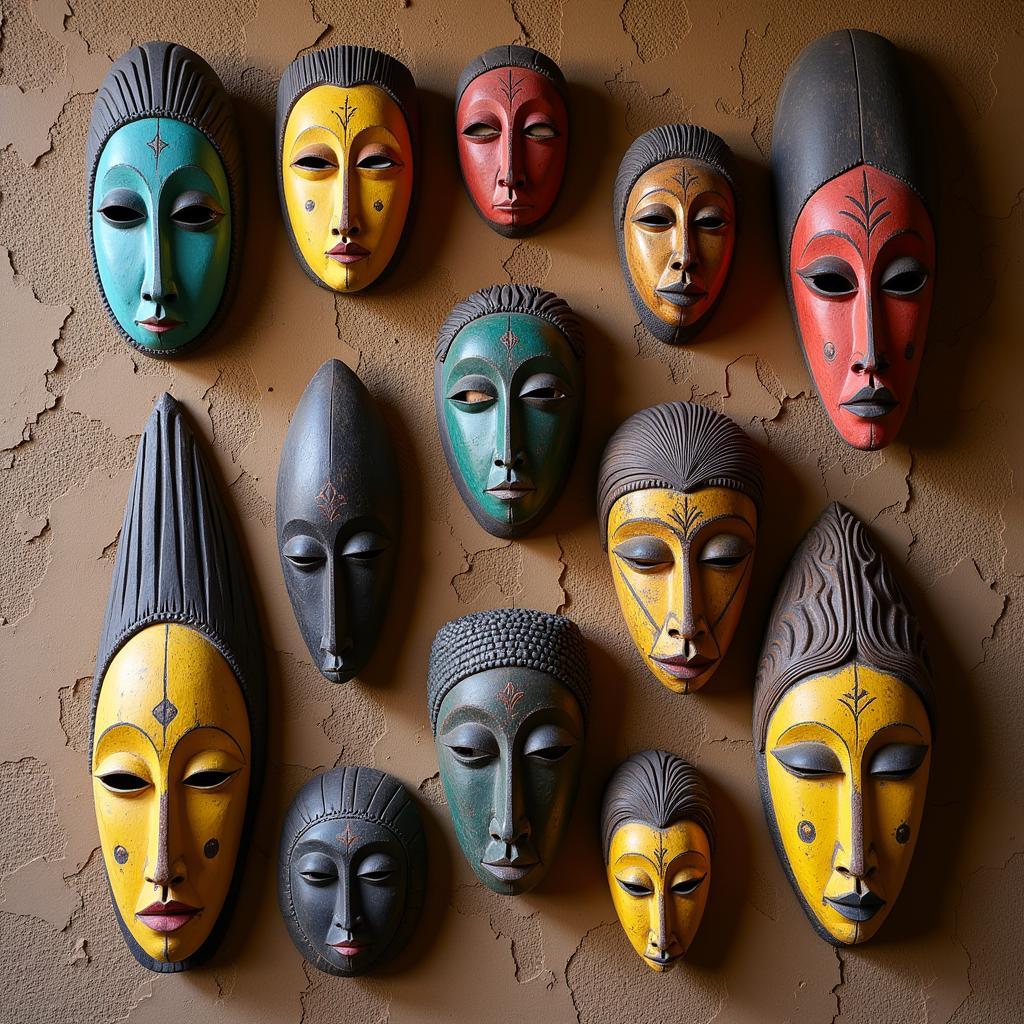African Conservation: Protecting a Continent’s Rich Biodiversity
African Conservation is a critical endeavor focused on preserving the continent’s unique and diverse ecosystems, which are under increasing threat from human activities and climate change. The future of Africa’s incredible wildlife, its rich cultural heritage tied to the land, and the livelihoods of millions depend on effective conservation strategies. From the vast savannas to the dense rainforests, understanding the challenges and embracing innovative solutions is crucial for the ongoing success of african conservation efforts.
The Importance of African Conservation
Why is african conservation so vital? Africa boasts an unparalleled array of biodiversity, housing a quarter of the world’s mammal species and a significant proportion of its plant life. This rich biodiversity plays a crucial role in maintaining ecological balance, providing essential ecosystem services like clean water and air, and supporting local communities. Protecting these natural resources is not just about preserving wildlife; it’s about securing the future of the entire continent.
Protecting iconic species like elephants, rhinos, and lions is a central focus of african conservation. These animals, often referred to as keystone species, play critical roles in their respective ecosystems. Their decline can trigger cascading effects, impacting the entire food web and the health of the environment. Conservation efforts target poaching, habitat loss, and human-wildlife conflict to ensure the survival of these magnificent creatures.
The African Conservation Foundation is just one example of an organization dedicated to protecting these vital ecosystems. You can learn more about their work by visiting their website: African Conservation Foundation.
 African Wildlife Conservation Efforts in Action
African Wildlife Conservation Efforts in Action
Challenges Facing African Conservation
African conservation faces numerous challenges, many stemming from human activities. Habitat loss due to deforestation, agriculture, and expanding human settlements is a primary concern. As natural habitats shrink, wildlife populations become fragmented and more vulnerable. Poaching, driven by the illegal wildlife trade, decimates endangered species populations and undermines conservation efforts. Climate change exacerbates these issues, leading to droughts, altered migration patterns, and increased competition for resources.
Another pressing challenge is the complex relationship between humans and wildlife. As human populations grow and encroach on wildlife habitats, conflicts inevitably arise. Crop raiding by elephants, livestock predation by lions, and other human-wildlife interactions can lead to retaliatory killings of animals, further endangering their populations.
The African Conservation Experience offers opportunities for individuals to get involved in conservation work firsthand. You can find out more by checking out these reviews: African Conservation Experience Reviews.
Innovative Solutions for African Conservation
Despite the challenges, there is hope for african conservation. Innovative solutions are being implemented across the continent, focusing on community-based conservation, technological advancements, and sustainable tourism. Empowering local communities to manage and benefit from their natural resources is crucial for long-term conservation success. By providing alternative livelihoods and promoting sustainable resource use, communities become active partners in protecting their environment.
Technology plays an increasingly important role in african conservation. Drones are used to monitor wildlife populations, track poachers, and combat illegal logging. Satellite imagery helps map habitat changes and assess the impact of climate change. These technological advancements provide valuable data and insights that inform conservation strategies.
What are some common questions about African conservation?
While the challenges are significant, there’s also a growing movement towards finding solutions. Groups like the African Conservation Grou are working on the ground to make a difference. Learn more about their work here: African Conservation Grou.
Sustainable tourism offers a way to fund conservation efforts while also benefiting local communities. By providing economic incentives for protecting wildlife and their habitats, tourism can become a powerful force for conservation.
Investing in the Future of African Conservation
African conservation requires a collaborative effort involving governments, NGOs, local communities, and international partners. Increased funding, improved law enforcement, and stronger international cooperation are essential to combat poaching and illegal wildlife trade. Investing in education and raising awareness about the importance of conservation is crucial for fostering a culture of sustainability. By working together, we can ensure that Africa’s incredible biodiversity is preserved for generations to come.
 Community-Based Conservation Initiatives in Africa
Community-Based Conservation Initiatives in Africa
Conclusion
African conservation is a complex and multifaceted challenge, but one that is worth fighting for. By addressing the root causes of environmental degradation, empowering local communities, and embracing innovative solutions, we can protect Africa’s unique biodiversity and secure a sustainable future for the continent. Continued investment in african conservation is not just an environmental imperative; it is a social and economic one as well. The future of Africa depends on it. You can learn more about how to get involved in african conservation through the African Conservation Experience: African Conservation Experience.
FAQ
- What are the biggest threats to African wildlife? Habitat loss, poaching, and climate change.
- How can I contribute to African conservation? Support conservation organizations, make responsible travel choices, and raise awareness.
- What is community-based conservation? Empowering local communities to manage and benefit from their natural resources.
- Why is African conservation important? To preserve biodiversity, ecosystem services, and cultural heritage.
- What are some successful African conservation stories? The recovery of mountain gorilla populations and the establishment of protected areas.
- How does climate change impact African conservation? Increased droughts, altered migration patterns, and resource scarcity.
- What is the role of technology in African conservation? Monitoring wildlife, tracking poachers, and mapping habitat changes.
Other Questions and Articles
- How does tourism impact conservation in Africa?
- What are the ethical considerations of wildlife conservation?
- Explore more articles on African culture and traditions on our website.
Call to Action
For any assistance or inquiries regarding African Conservation, please contact us:
Phone: +255768904061
Email: kaka.mag@gmail.com
Address: Mbarali DC Mawindi, Kangaga, Tanzania
Our customer service team is available 24/7 to assist you.



